
Stabilizers revolutionize biopharmaceutical production with CHO Cells
The biopharmaceutical industry stands at the forefront of modern medicine, offering life-saving treatments such as antibodies, vaccines, and cell therapeutics. Central to the production of these advanced therapies are mammalian cell lines, with Chinese Hamster Ovary (CHO) cells being the workhorse of choice.

Green Pharmaceuticals from Lignin: A Sustainable Revolution in the Pharma Industry
Imagine a future where the pharmaceuticals we rely on every day are derived from renewable agricultural and forestry waste rather than non-renewable petroleum resources. This vision represents a transformative shift in the pharmaceutical industry towards sustainability and circular economy. The advent of green and bio-based pharmaceuticals heralds a new era where innovative approaches in green chemistry and biotechnology can produce therapeutic agents and with a significantly reduced ecological footprint. This holistic strategy aligns with the increasing global demand for sustainable solutions, setting the stage for a future rich in renewable medicines and adjuvants.

Leveraging Microscopic Moo-vement: Unleashing the Power of Milk EVs for Gut Health!
Welcome, curious innovators of digestive health! If you’re tired of the same old gut health solutions, it’s time to turn your attention to a tiny yet mighty game-changer: Milk Extracellular Vesicles (mEVs). These microscopic marvels are poised to revolutionize the way we approach gut health, and we’re here to tell you why.

May the Force Be With Your Protein Research: acib Offers Lightspeed Insights with HDX-MS!
Greetings, Life Science Jedis on a quest to unravel the mysteries of the protein galaxy! In your journey through the biochemical universe, traditional techniques often leave you stranded on the dark side of insufficient data, akin to facing the formidable Death Star . But fear not, for the Austrian Centre of Industrial Biotechnology (acib) has harnessed a tool that would impress even Master Yoda: Hydrogen-Deuterium Exchange coupled to Mass Spectrometry (HDX-MS).

Microbial Phytosterol Production: A Sustainable Approach by acib
The quest for healthier lifestyles has driven substantial interest in natural compounds with proven health benefits. Among these, phytosterols stand out as a powerful group of substances with a plethora of positive effects on human and animal health.

The Prebiotic Revolution: Unleashing the Power of Your Gut Microbiome
Have you ever heard of the gut microbiome? It’s a fancy way of saying the trillions of microorganisms that live inside your intestines. These aren’t unwanted guests, but a complex ecosystem known as the gut microbiome. These microscopic marvels play a surprisingly significant role in your overall health, influencing everything from digestion and immunity to mood and even weight management.

The Elastic Revolution: How mcl-PHAs Are Reshaping Our Future
Our world craves flexibility. From the bounce in our athletic shoes to the stretch in our favorite clothing, elastic materials play a vital role in our daily lives. However, there’s a dark side to this convenience: traditional elastic materials often rely on synthetic polymers derived from fossil fuels. These materials contribute to plastic pollution and a growing environmental crisis.
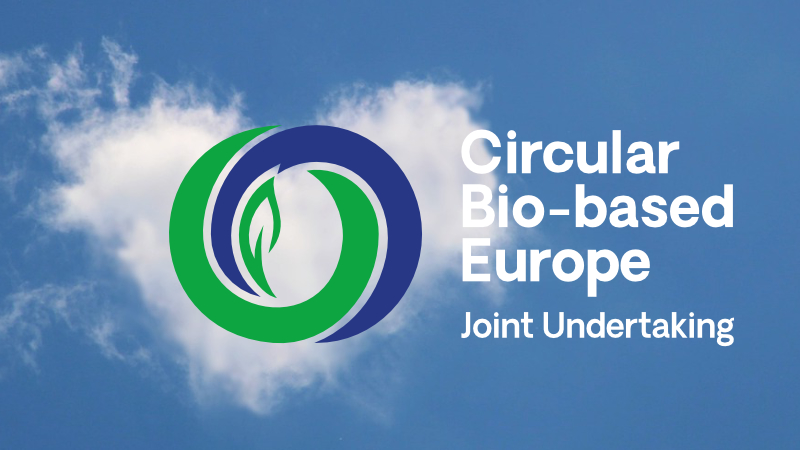
Collaboration opportunities for Circular Bio-based Europe Joint Undertaking call 2024
The Bio-based Industries Consortium (BIC) in partnership with the European Union has announced an open call for proposals under the Circular Bio-based Europe Joint Undertaking (CBE JU). It funds research and innovation projects that advance circular bio-based industries in Europe under the EU’s Horizon Europe programme. The 2024 call for proposals is open for submission until 18 September 2024 at 17:00 CET.

Further Improving Vaccine Safety: The Role of Vasoconstrictors in mRNA Vaccine Preparation
In the midst of the COVID-19 pandemic, the development and deployment of mRNA vaccines have been hailed as a triumph of modern medicine. These groundbreaking vaccines offer unprecedented levels of efficacy against the virus, paving the way for a return to normalcy. However, concerns have emerged regarding the safety profile of mRNA vaccines, particularly with regards to the risk of adverse effects such as myocarditis. In this blog, we delve into an innovative approach to enhance the safety and efficacy of mRNA vaccines: the incorporation of vasoconstrictors during vaccine preparation.
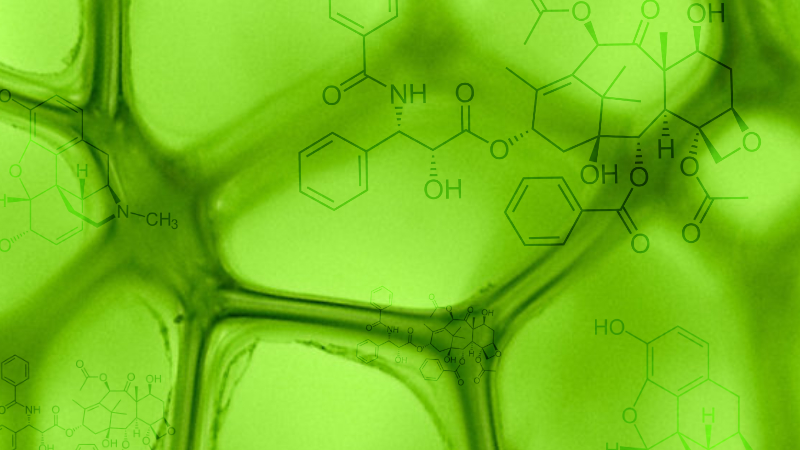
Next-Generation Medicines: The Promise of Plant Cell-Based Alkaloid Production
In the vast landscape of pharmaceuticals, plant-derived compounds, also called alkaloids, have long held a significant place. Many of them are first choice medicines to treat cancer, pain, malaria, and dementia. Production of these essential compounds by large still relies on field-grown plant material and chemical extraction. The lack of alternative production platforms makes supply chains of alkaloid-based medication vulnerable and dependent on environmental and socio-economic factors. To overcome current limitations, acib is in the forefront to develop a scalable, bioreactor-based technology to produce high-value plant alkaloids through a plant cell-based technology. Therefore, we are looking for partners to join our forces to revolutionize the production of plant alkaloids.

Decoding the Cellular Symphony: The Marvels of CHO-Cell Technology in Biopharmaceuticals
In the vast realm of biopharmaceuticals, where science meets innovation, a microscopic hero has emerged—Chinese Hamster Ovary (CHO) cells. These unassuming cells have become the unsung champions of our quest for groundbreaking therapies, weaving a tale of genetic intricacies and technological triumphs.

Wastewater: On the trail of the Evolving COVID-19 Variants
Even as we approach the end of 2023, the COVID-19 pandemic, which once seemed like a narrative out of a science fiction tale, continues to evolve. Austria, having lifted all COVID-19 restrictions, now faces the challenge of monitoring the virus’s ever-changing landscape. The persistence of COVID-19 is evident in the ongoing circulation of Omicron subvariants like EG.5 and BA.2.86, which are currently prevalent across Europe.
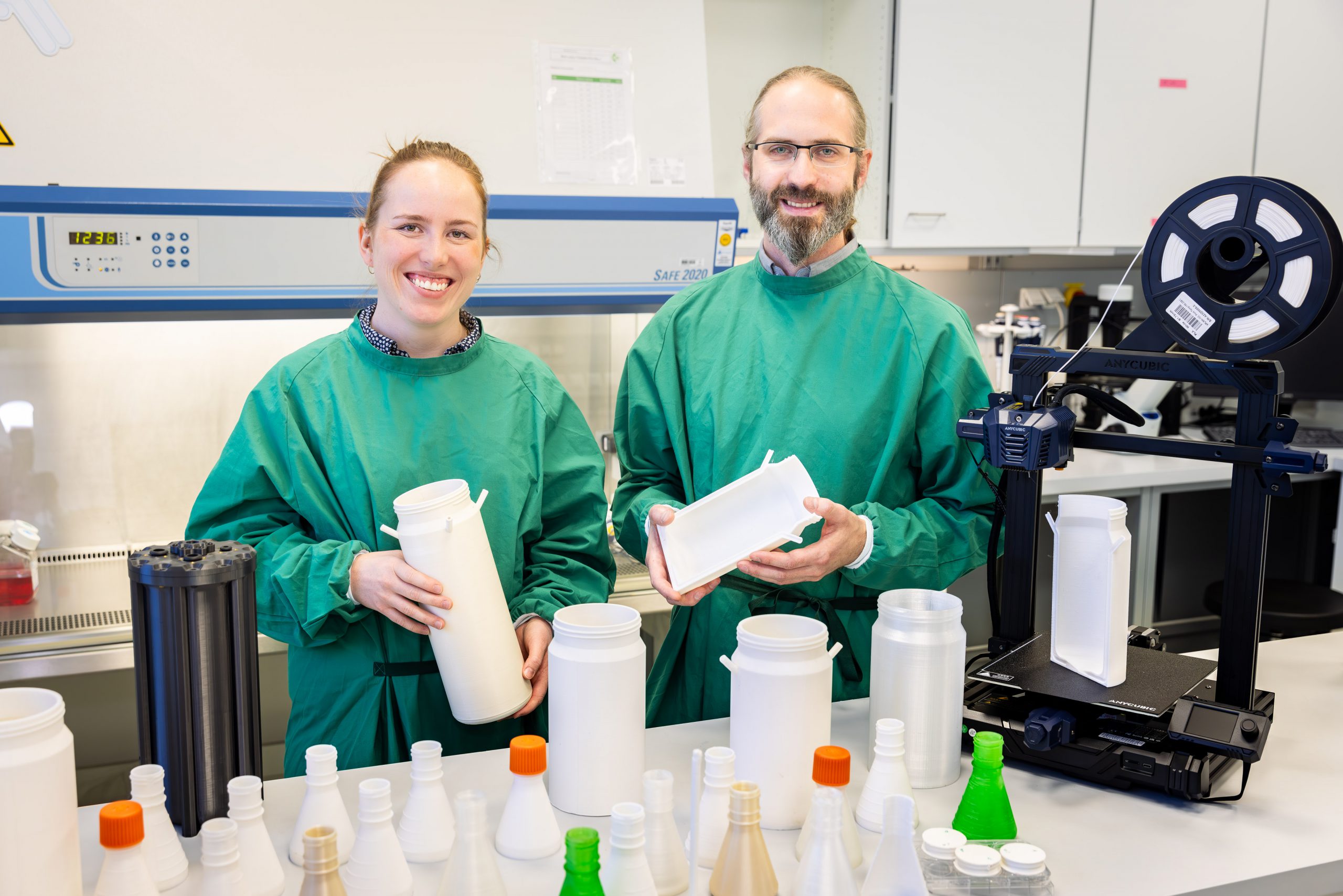
Sterile laboratory equipment from the 3D printer
Viennese acib and BOKU researchers are developing a sterile 3D printing process that can be used to produce laboratory equipment from environmentally friendly and biodegradable plastic. This could avoid several million tons of single-use plastic waste and reduce resource, energy and water consumption by up to 90 percent.
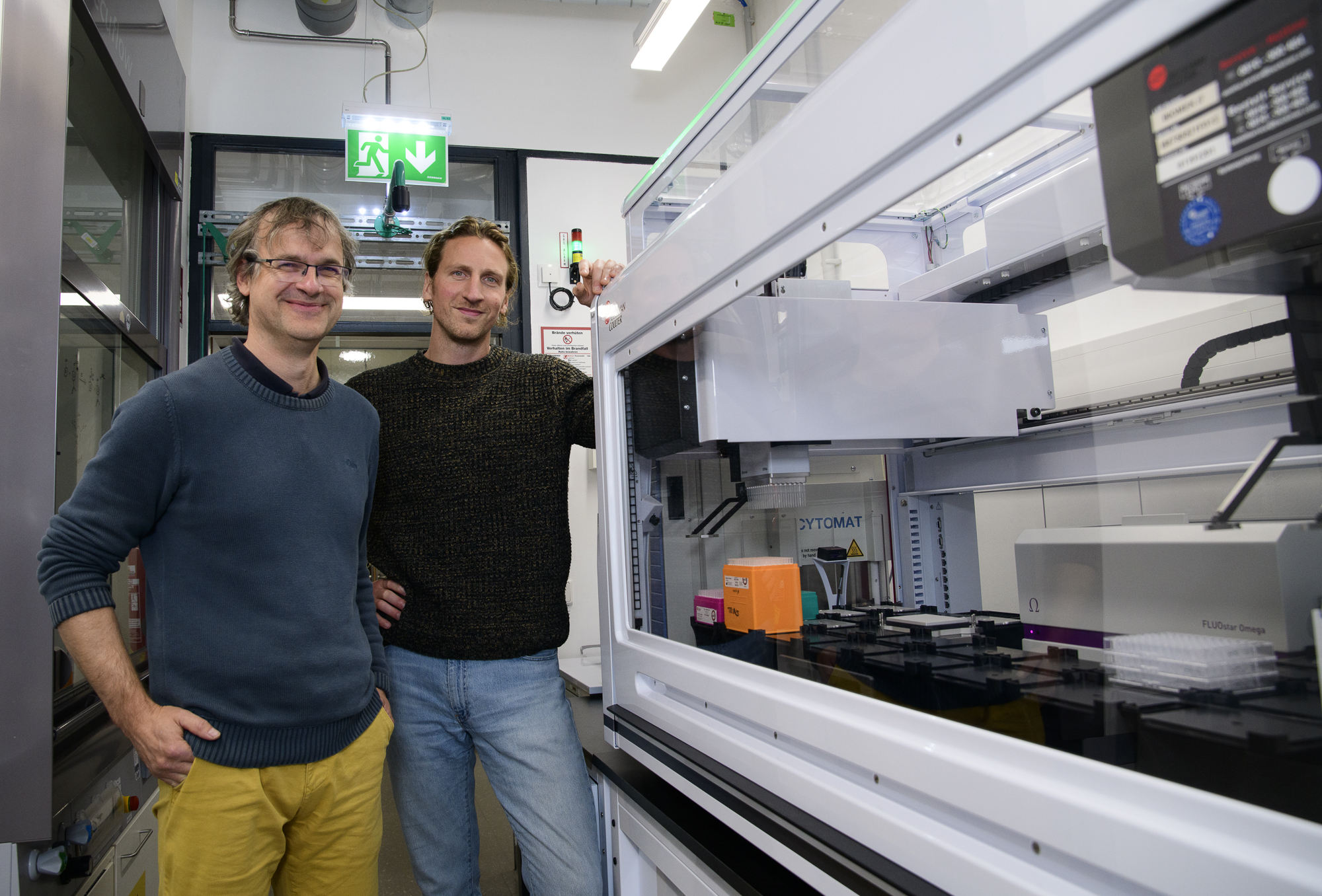
Environmentally friendly and faster drug production
Researchers have found a way to make the industrial production of pharmaceuticals, as well as flavorings and biopolymers, more environmentally friendly: Unlike chemical processes that use toxic heavy metals, the new biocatalytic synthesis pathway uses natural enzymes as reaction accelerators. In combination with an innovative enzyme search and screening process, the products can be manufactured faster and much more cost-effectively than before. The process has already been launched on the market: The bisy company is now using the new method to search for new enzymes for customers worldwide.
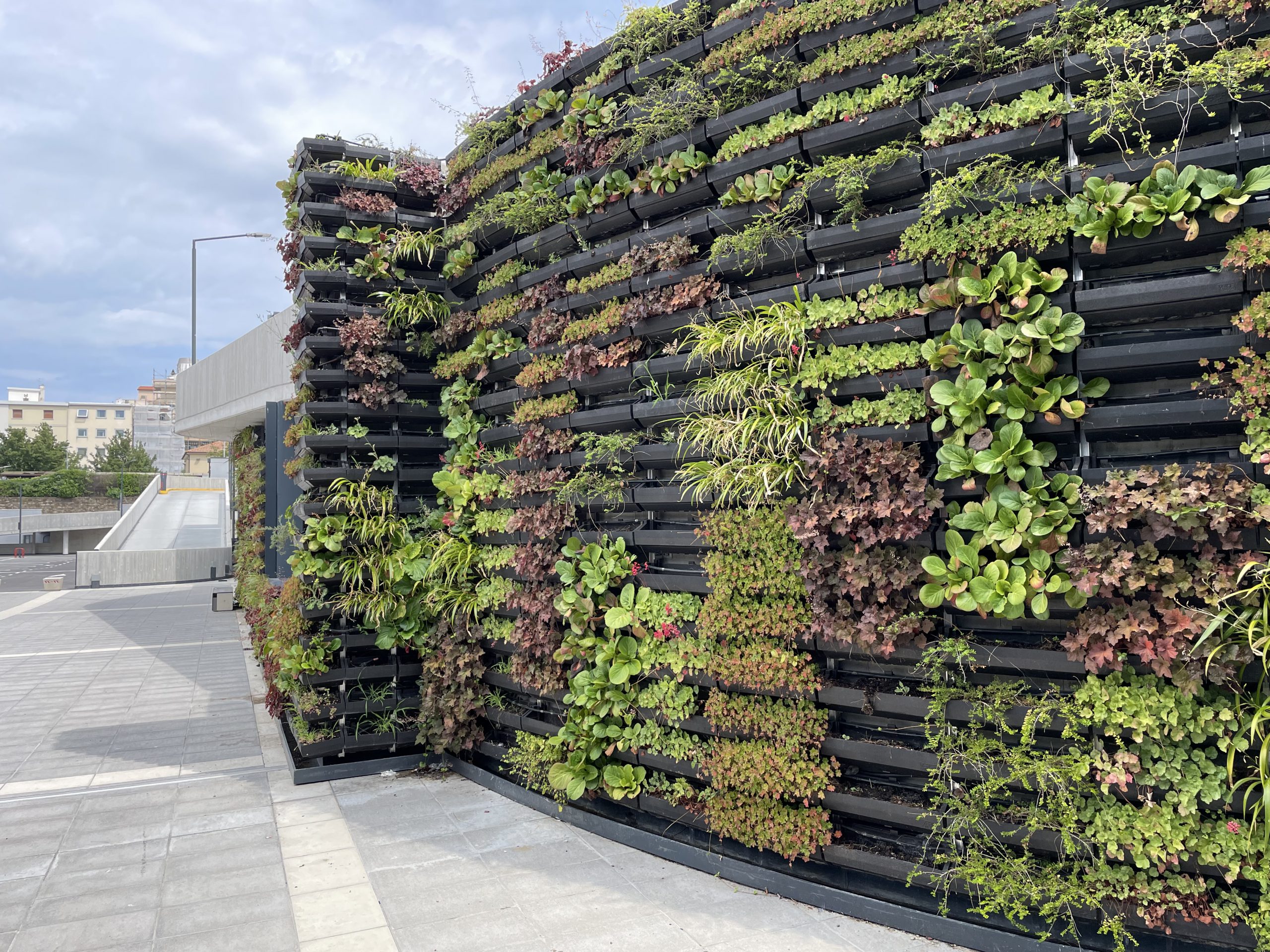
Biotech meets architecture
As technology advances and our understanding of biological systems deepens, the integration of biotechnology into architecture is likely to lead to even more innovative and sustainable solutions for buildings, gardens, and city districts. The intersection of biotechnology and architecture opens up innovative opportunities for creating sustainable, efficient, and aesthetically pleasing built environments. acib looks at several ways biotechnology can be integrated into architecture.

PhD Career Stories: Business Development
Martin Trinker, our Director of Business Development was invited to a podcast episode of PhD Career Stories. Enjoy listening!

Unveiling Agnotology: Empowering Informed Societies
In the digital age, where information floods our screens, the rise of agnotology has darkened the pursuit of truth. Agnotology, a term coined by Robert N. Proctor1, refers to both, the study of culturally induced ignorance and the deliberate spread of misinformation to create confusion and doubt2.

Von Holz zu Biokunststoff
Im Rahmen eines Praktikums durften wir (drei Schüler der Forstschule Bruck) an der TU Graz bzw. beim acib (Austrian Centre of Industrial Biotechnology) den Weg vom Holz zum Biokunststoff im Rahmen unserer Diplomarbeit erforschen.

Biobased and biodegradable plastics for safer, more sustainable products
As part of the EU project BIO-PLASTICS EUROPE, 22 scientific and industrial project partners from 13 countries are working on sustainable solutions for the production of biobased and biodegradable plastics to bring sustainable and safe products to market – from reusable cutlery and toys to packaging and agricultural products.

A laundry machine for viral vaccines
A purification process for vaccines produced via a measles vector platform will soon lead to a more flexible, reproductive and economic process contributing to the faster development and production of vaccines.

Beyond the shot: Biocatalysis unlocks sustainable pseudouridine production for mRNA vaccines
mRNA vaccines gained widespread notoriety for their revolutionary power in combating the Corona pandemic. But behind the scenes, a silent hero called pseudouridine plays a crucial role in maximising their efficacy and safety. Pseudouridine, a modified RNA building block, has the remarkable ability to increase RNA stability and fine-tune immune responses, making it a valued component in the world of mRNA therapeutics. However, with the increasing demand for these breakthrough vaccines, the question arises: how can we produce pseudouridine sustainably without compromising efficiency or environmental impact?

How biotech tools help to fight climate change
The recent climate change is caused by greenhouse gases absorbing some of the heat that the Earth radiates after it warms from sunlight, thus trapping this heat in Earth’s lower atmosphere, causing global warming. There are many approaches to reduce this phenomenon. acib as the leading institute of industrial biotechnology developed several biotech tools for that very purpose.

CELL | PARCEL
Sustainable spatial solutions today, especially in urban planning and urban research, must consider and incorporate the background of challenges such as climate, energy, technology, and society. A new interdisciplinary project named CELL | PARCEL combines architecture and biotechnology with the question of how future spaces can be made more resilient to these challenges – and attractive and livable at the same time.

Food from the lab – how healthy can it be?
A balanced diet is important, we learn that from an early age. The more natural the ingredients and the shorter the supply chains, the better for our health and for the environment. Nevertheless, a trend is currently developing in biotechnology towards food ingredients fresh from the laboratory. Probiotics from intestinal bacteria, flavourings from yeast fungi or artificial meat from animal cell cultures – all these examples are the subject of daily research in industrial biotechnology.

Repairing spinal cord injuries with nanotechnology
A Europe-wide project named “Piezo4Spine” sets the high goal of developing a novel therapy against spinal cord injuries (SCI). Based on the latest findings in materials science, regenerative medicine and nanotechnology, research is being conducted on a 3D-theramesh equipped with bioactive nanocarriers that delivers therapeutic agents to the site of the lesion through electrical stimulation. These bioactive ingredients activate the neuronal regeneration processes after an SCI has occurred. If successful, this technology could be useful in the future for pathologies such as Alzheimer’s or Parkinson’s disease, among others.

Enabling Alkaloid production in engineered poppy cells
Opiate alkaloids such as morphine and codeine are important pharmaceutical ingredients used to treat severe pain. Morphine is even classified as an essential medicine by the World Health Organization (WHO). Opiate-based medications are crucial to provide normal life for patients who need long-term pain management due to living with terminal cancer, sickle cell disease, COPD- related dyspnea, (etc.). Unfortunately, morphine is practically unavailable in low- and middle-income countries leaving patients in suffering.

Microalgae polymers instead of synthetic ones – a greener future for skin care
Petrochemical synthetic-based polymers are still everywhere in our daily lives, despite strict regulations and general awareness of their long-term risks to the environment and human health. This is especially true of the numerous cosmetics and personal care products that we apply to our skin every day, and which can cause skin problems, allergies, hormonal changes, and even lead to cancer with prolonged use!

CO2: Feedstock of the future bioprocesses
Carbon serves as the building block of life, as well as the goods and products we use every day. We consume fossil fuels and use carbon to make plastic and a variety of other products. Life as we know it today would not be possible without it. Therefore, carbon balance is crucial to have a sustainable world and future. In this context, CO2 balance is of particular interest because the rising atmospheric CO2 concentrations due to human activities is the main trigger for global warming, which in turn leads to a climate crisis that affects the global health, economy, and future of our planet.

Biotechnological yeast instead of crude oil – the way to renewable plastics
Viennese researchers from the Austrian Centre of Industrial Biotechnology (acib) and BOKU Vienna found a way to use the harmful greenhouse gas CO2 as a raw material for the production of industrial products such as bioplastics, absorbents or important chemicals with the help of an optimized yeast, thus binding it into durable materials. The technology, which is still on a laboratory scale, is not only climate-neutral, but could also make a contribution to the fight against climate change in the future.
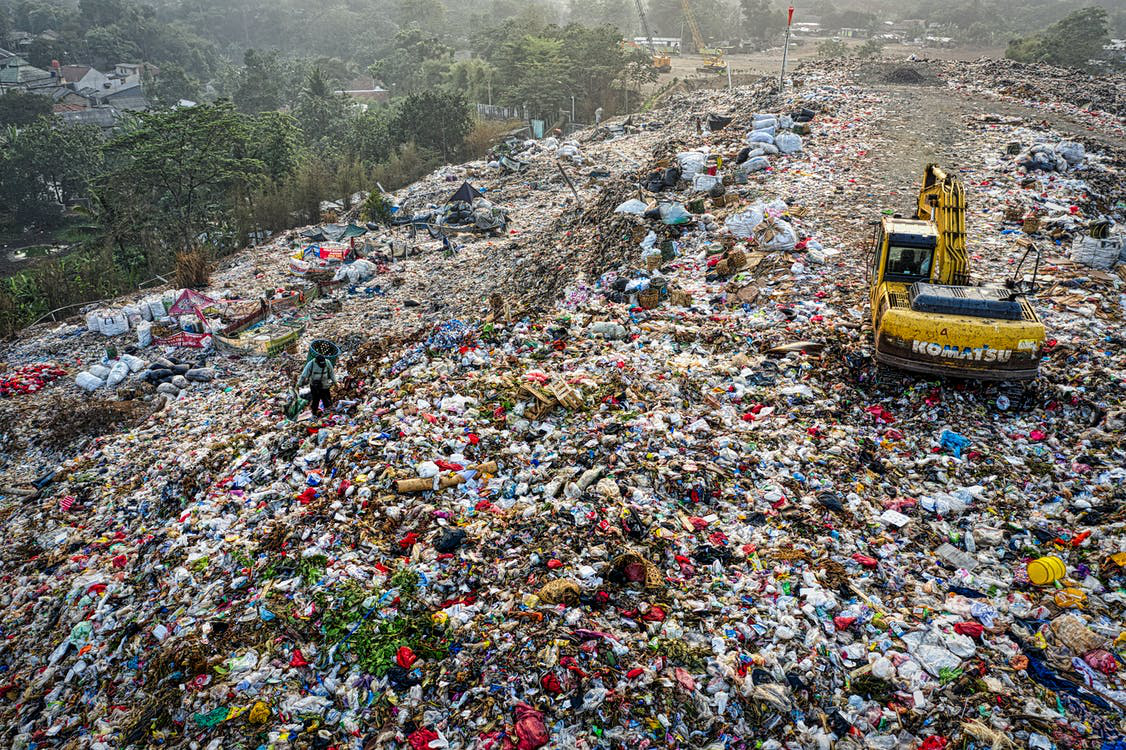
MOOC “The new plastics economy: circular business models and sustainability”
The MOOC “The new plastics economy: circular business models and sustainability”, realized within the Horizon 2020 BIO-PLASTICS EUROPE project